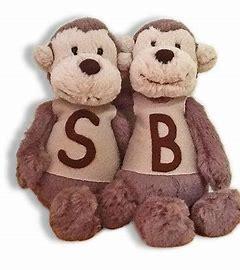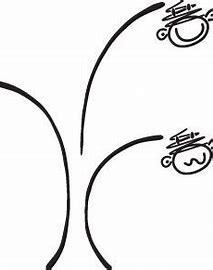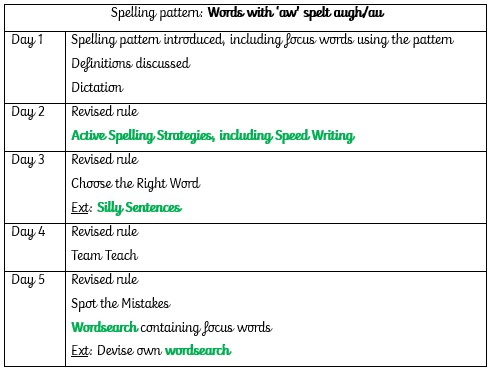Writing
At Woodlands, we recognise the importance of writing, not just in Literacy but throughout the curriculum and as a life skill. Children are given every opportunity to develop technical writing skills and to then apply this learning to a range of styles, purposes and audiences. Units are planned so that children are introduced to and immersed in range of genres including fiction, non- fiction and poetry. Children continually evaluate and improve their own work and understand their next steps for learning. Clear learning objectives with success criteria enable children to recognise the steps they need to make progress in their writing.
As part of our phonic and literacy sessions, children are taught to use a cursive script and joining is encouraged as soon as letters are formed correctly. Children take pride in their books and work is well presented. Click on the link below to find out more about how our pupils begin forming letters.
We use carefully structured progression documents to ensure that substantive and disciplinary knowledge and skills are clearly outlined and sequenced, thus enabling the children to know and remember more, as they move through school.

Intent
Writing is an essential skill, explicitly linked to communication, for life outside of school. We aim to foster an enjoyment of writing amongst all our children, and a recognition of its value, through the provision of a sequenced, ambitious curriculum. We place the development of writing, directly linked to reading, at the very heart of the curriculum, and provide meaningful contexts and quality texts as the inspiration for writing.
Ultimately, we want our children to enjoy writing and be enthused by the writing stimuli offered. Outside of school, our children have limited exposure to a range of stories, and texts, that support them to see the world beyond where they live. Stimuli offered at Woodlands are, therefore, carefully selected to expose children to new experiences furthering their imagination, informing their writing and, ultimately, supporting them to become well-rounded citizens, thus improving their cultural capital.
As they become more competent, and inspired, writers, our children will write cohesively, for a range of purposes. At Woodlands, we not only develop a real enjoyment of writing in Literacy lessons, but in all subjects across the curriculum and we demand the highest standards of writing always.
Implementation
Woodlands’ Curriculum offer has been developed using the Early Years Statutory Framework and the National Curriculum. Writing Progression documents have been created and are referred to by teachers, constantly, to ensure learning is carefully sequenced. They outline the progression of knowledge across the year groups, leading, ultimately, to the writing of a range of quality genres. These documents also ensure that educators know what has been taught in previous years and what is to be taught in the future.
Our curriculum offer is strengthened by Read, Write Inc. and Kinetic Letters schemes. Read, Write Inc., which is a significant strength of our reading curriculum at Woodlands, is a systematic, synthetic phonics programme that is certified by the Department for Education. The programme ensures that pupils can apply their phonic knowledge to their writing, enabling them to become competent, and inspired, writers. Kinetic Letters is an evidence-informed handwriting programme that builds the cognitive and physical skills for handwriting, ensuring automaticity and flow when writing.
Impact
Proficiency in the skill of writing, and the ability to communicate through such a skill, is imperative for life outside of school, as a child and as an adult. When our children leave Woodlands, they have made good progress from their own personal starting points. By the end of Year Six, they have the stamina, and skills, to write at length for a variety of purposes, including narratives, explanations, descriptions, comparisons, summaries and evaluations, with accurate spelling and punctuation. The children have a wide vocabulary knowledge, are adventurous with their choices within their writing and, ultimately, will love writing.
Handwriting
 Our school handwriting scheme is called Kinetic Letters, the children learn how to form letters based on how they have been grouped into letter families. Each letter family is introduced to the children through a story about two monkeys called Bounce and Skip. Bounce is a brave monkey and helps write the tall letters whilst skip is a scared monkey and helps write the other letters.
Our school handwriting scheme is called Kinetic Letters, the children learn how to form letters based on how they have been grouped into letter families. Each letter family is introduced to the children through a story about two monkeys called Bounce and Skip. Bounce is a brave monkey and helps write the tall letters whilst skip is a scared monkey and helps write the other letters.
the letter family stories 300829535.pdf
Spellings
Woodlands’ Spelling Scheme
Day 1
Purpose: Explicit teaching of spelling patterns: a good understanding of spelling patterns, and spelling mechanisms, can improve both reading and writing! Dictation improves knowledge and understanding of not only spelling in context but also of correct sentence structure and punctuation.
Introduce the spelling pattern
Share words using that pattern
Definitions of these words (first ones the chn know – then TOL for any they don’t)
Dictation
MFS - Look/cover/write/check
Day 2
Purpose: Active spelling provides a systematic approach to vocabulary acquisition. It uses the principles of mneumonics, images and verbal reasoning, to aid both the retention of new spellings and develop breadth of vocabulary.
Revise all of Day 1
Active Spelling Strategies – pencil, pen, coloured letters (respective to ascender/descender/midi or vowels/consonants), bubble writing, rainbow letters, drawing dots and dashes, syllabification, anagrams, finding words within words, compound words, making a mneumonic, squiggly letters, upper and lower case, print letters, join letters, dotted letters etc. Can vary – class enjoyment/preference.
Speed writing - who can write X the most times in a minute? Spelt accurately and written neatly!
Day 3
Purpose: Multiple exposures improve learner retention of new knowledge used to develop the mastery of new skills and knowledge and to improve understanding of new vocabulary.
Use the teaching guidance from RWI to ensure teaching points are not overlooked e.g. I know it must be ‘ate’ because the sentence is past tense…
I know it is more than one, plural, so it must end in ‘s’…
I know this is a fronted adverbial, telling me where, so it needs a comma…
Revise all of Day 1
Choose the right word – handwriting/meaning also a foci in this case
Ext: Silly sentences – Devise your own sentence using at least more than one focus word.
Day 4
Purpose: For children to work collaboratively, with their peers, to review and revise words. Collaborative learning has been shown to not only develop higher-level thinking skills in students but boost their confidence and self-esteem as well. Working together creates a better learning experience.
Revise all of Day 1
Team Teach (as RWI Spelling Programme does)
Day 5
Purpose: To assess, and deepen, a child’s understanding and to reinforce the idea that mistakes are important for learning.
Word searches are great games for stimulating cognitive skills such as pattern recognition, problem-solving and verbal reasoning. By actively engaging your brain to find hidden words, you're exercising your mind, keeping it sharp and active.
Revise all of Day 1
Spot the mistakes! (focus words and others inc high frequency, common exception words, 3/4 words etc)
Wordsearch
Ext: Chn could create their own wordsearch.
Additionally:
Spelling Test – Every third week, replace Day 5 with a spelling test, incorporating approximately twelve words (4 from each focus).
Purpose: To support the children to know and remember more, improving their spelling over time. Testing will also allow teachers to assess children’s progress and identify words to select as additional focus words when planning ‘Spot the mistakes!’ activities for Day 5.
Spot the mistakes+ - At the end of every unit, typically every sixth week, replace Day 5 with a Spot the mistakes +, incorporating mistakes from the whole unit. This acts as the spelling test.
Purpose: To assess, and deepen, a child’s understanding and to reinforce the idea that mistakes are important for learning.
Wordsearch – if no time, not finished on Day 5 or an alternative activity completed, as above, wordsearch to be completed in MFS time (provided they have no other MFS).
Purpose: Word searches are great games for stimulating cognitive skills such as pattern recognition, problem-solving and verbal reasoning. By actively engaging your brain to find hidden words, you're exercising your mind, keeping it sharp and active.
Class competition throughout week – who can use them, spelt accurately in their writing the most this week? If used in conversation, can they spell them?
Purpose: Competitions motivate students in a fun and engaging way, offering unique learning and growth opportunities. It allows them to make connections and apply their knowledge to real-life scenarios.
Share on dojos so parents can encourage weekly use at home!
Purpose: Parents play a crucial role in supporting their children’s learning. If parents are aware of the focus words, they can use/spell them with their child at home and recognise (and reward!) the children when they use/spell them.







